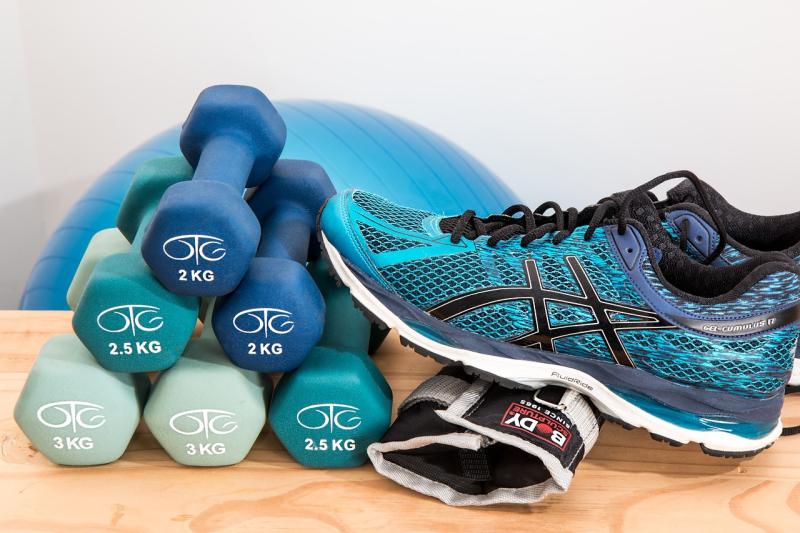Exercise isn’t just good for your body; it’s a big booster for your brain too! When you get moving, whether it’s a brisk walk, a bike ride, or even dancing in your living room, you’re pumping up your brain power. Research shows that regular physical activity can improve memory, thinking skills, and even your mood. It’s like giving your brain a fresh new pair of sneakers!
One of the best things about exercise is that it increases blood flow to your brain. This means more oxygen and nutrients are delivered straight to the important areas that keep your thinking sharp. Plus, exercise can help reduce stress and anxiety, which often cloud our thinking. Feeling good mentally can really help keep those worries at bay!
Even small amounts of movement can make a difference. Whether it’s gardening for a few minutes or stretching while watching TV, every bit counts. Setting achievable goals, like taking the stairs instead of the elevator or going for a daily walk, can keep you motivated and engaged. And if you can find activities that you enjoy, you’ll be more likely to stick with them!
Let’s not forget about social benefits too! Joining a group class or exercising with a friend can turn a workout into a fun experience. Connecting with others while staying active can enhance your overall well-being, making it a win-win for your brain and your heart.
Types of Exercises That Help You
When it comes to boosting brain health, not all exercises are created equal. Different types of workouts can target various aspects of brain function and overall well-being. Let’s dive into some types of exercises that can really help.
Aerobic Exercise: Cardio workouts get your heart pumping and blood flowing. Activities like walking, jogging, cycling, and swimming are great choices. They increase oxygen supply to the brain and can encourage the growth of new brain cells. Plus, these exercises release endorphins, which can lift your mood!
Strength Training: Lifting weights or using resistance bands isn’t just for building muscles; it also benefits your brain. Strength training can improve your mood and boost your cognitive functions. Studies suggest that it can help reduce age-related decline in mental abilities, so grab those dumbbells!
Balance and Flexibility Exercises: Think yoga or tai chi. These exercises not only enhance your physical stability and flexibility but also calm your mind. They can help reduce stress and anxiety, which can have a positive impact on brain health. Plus, focusing on your breath and movements helps improve mindfulness.
Brain Games and Coordination Activities: Combining physical activity with mental challenges can be incredibly beneficial. Trying out dances, sports, or even playing catch can improve your hand-eye coordination while keeping your mind sharp. It’s a fun way to get your body moving while stimulating your brain!
How to Get Started Simply
Getting started with exercise to boost brain health, especially for dementia, doesn’t have to be complicated. The key is to create a routine that fits easily into your life. You can begin with simple activities you enjoy, making it easier to stick with them.
Here are some straightforward tips to get you on the right path:
- Choose Activities You Enjoy: Whether it’s walking, dancing, or yoga, pick something that makes you happy. If you look forward to it, you’re more likely to keep doing it.
- Start Small: If you’re new to exercising, start with just 10-15 minutes a day. Gradually increase the time as you feel more comfortable.
- Set a Routine: Try to exercise at the same time every day. It could be in the morning, during your lunch break, or in the evening. Consistency helps build habits.
- Incorporate Social Activities: Joining a class or walking with friends can make exercise more enjoyable. Plus, socializing has its own brain benefits!
- Listen to Your Body: Pay attention to how you feel. If something doesn’t seem right, don’t hesitate to adjust the activity or take a break.
Mixing things up is also a great way to keep it interesting. Try different exercises each week! Whether it's a brisk walk outside or a fun dance routine inside, variety can keep you engaged and provide different benefits for your brain.
Tips for Staying Consistent with Exercise
Staying consistent with exercise can sometimes feel like a challenging task, especially when life gets busy. Here are some friendly tips to help you keep moving and stay on track.
1. Set Realistic Goals: Start small! Instead of aiming for an hour at the gym every day, consider 10-15 minutes of activity. Gradually increase your time as you get more comfortable. This makes it easier to stick to your routine without feeling overwhelmed.
2. Find Activities You Enjoy: Exercise doesn't have to mean lifting weights or running miles. Dance in your living room, go for a nature walk, or try gardening. The key is finding something that feels fun, so you actually look forward to doing it!
3. Schedule It In: Treat your workout time like an important appointment. Block off time in your calendar, just like you would for a meeting. This can help you prioritize your exercise and make it a regular part of your day.
4. Buddy Up: Exercising with a friend or family member can make it more enjoyable. You can encourage each other and even turn workouts into a social event. Plus, it adds a level of accountability that can keep you committed.
5. Mix It Up: Keep things interesting by trying new activities or changing up your routine. This not only prevents boredom but also works different muscle groups, keeping your body engaged and improving your overall health.



